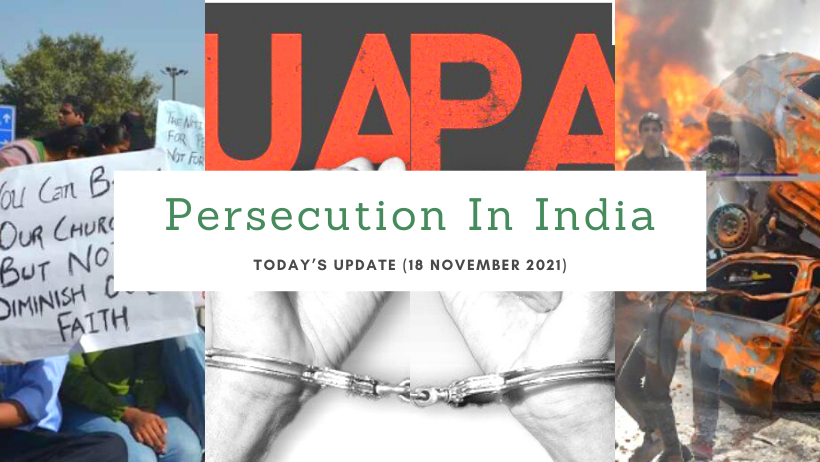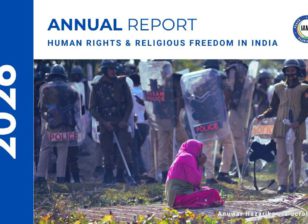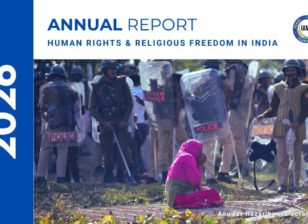Former Government Officials, Diplomats, Police Chiefs Move Supreme Court Against Law Targeting Government’s Critics, Minorities
Several former top civil servants, diplomats and police officers have asked India’s Supreme Court to strike down the stringent provisions of the draconian Unlawful Activities (Prevention) Act (UAPA) which is widely abused to target human rights defenders, government’s critics, religious minorities, journalists and students.
The Supreme Court has taken up the case and asked Indian Prime Minister Narendra Modi’s government to file its response.
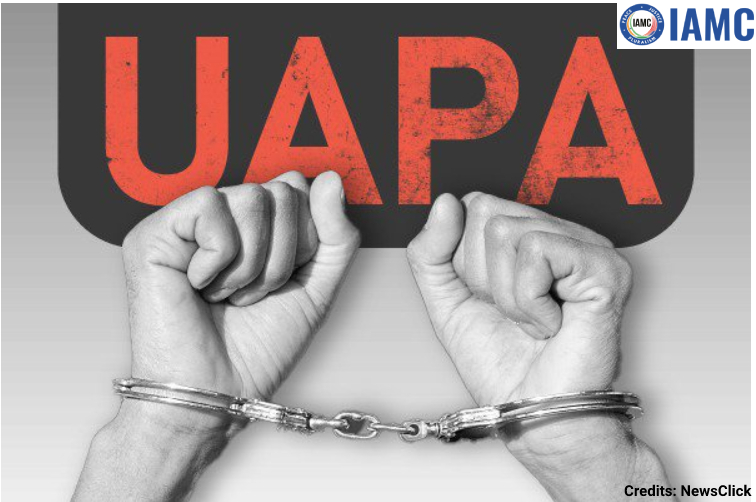
The petitioners include luminaries like ex-Indian Administrative Service (IAS) officers Wajahat Habibullah, Amitabha Pande, Harsh Mander, Kamal Kant Jaswal, Hindal Tyabji, MG Devasahayam, Pradeep Kumar Deb, and Baldev Mahajan; former Indian Police Service (IPS) officers Julio Ribeiro and Ish Kumar; and former Indian Foreign Service (IFS) officer Ashok Kumar Sharma.
The petitioners have said the UAPA arbitrarily classifies “terrorists,” upending the common principle of jurisprudence that an accused person is presumed innocent until proven guilty. They have said that the law must define the word “terror.”
To say that a person “struck terror” cannot be sustained in the absence of a definition of the word “terror”,” the petition has said.The petition also challenges the constitutionality of the law’s stringent bail provisions that make it virtually impossible.
“The abysmally low rates of successful prosecutions are also a pointer to fact that said proviso is arbitrarily used more to quell dissent than to achieve the actual objectives of the Act.”
Such bail provisions have created a situation where merely being accused of a crime under the UAPA is considered sufficient to keep a person incarcerated, until the lengthy trial process is over.
Delhi Government Orders Facebook To Submit User Records During Anti-Muslim Violence
The legislative assembly of India’s capital, Delhi, asked Facebook on November 18 to submit records of users’ reports (complaints) on the content posted on the platform one month prior and two months after the anti-Muslim violence in the city in February 2020 in which more than 50 people were killed, a majority of them Muslims.
Hearing a representation by Shivnath Thukral, the public policy director of Facebook India (Meta Platforms), in the Assembly, chairman of the Peace and Harmony Committee Raghav Chadha asked for the records.
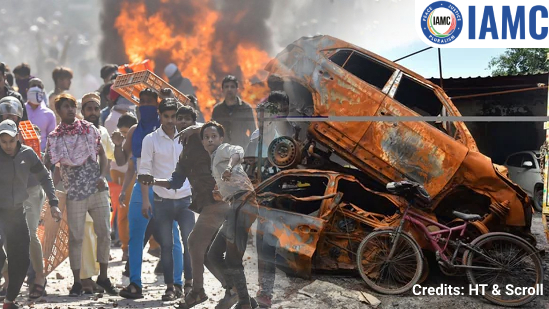
Chadha also quizzed the Facebook official regarding the organisational structure, the complaints redressal mechanism, community standards and hate speech definitions with respect to the social media giant. Thukral said Facebook was not a law enforcement agency but it had a mechanism to co-operate with such agencies whenever required.
“When things happen in the real world, they reflect on our platform as well. We do not want hate on our platform. There are some bad actors that need to be worked on,” Thukral said during the hearing.
Former Facebook employee Frances Haugen, who turned whistleblower a month ago, has submitted documents to the U.S. Securities and Exchange Commission establishing how Facebook India has allowed anti-Musilm hate and incitement to violence to flourish on its platforms, both Facebook and WhatsApp.
BJP-Ruled Madhya Pradesh Forcing Christians To Convert To Hinduism
In a shocking report, it has been alleged that Christians in the central Indian state of Madhya Pradesh are under increasing pressure from Hindu extremists to give up their faith. “Our people are being forced to give up Christianity and join the Hindu religion,” said Patrick Ganava, a Catholic from the predominantly tribal Jhabua district.
Hindu activists and organizations were conducting special drives in villages to pressurize Christians. “There is propaganda against Christians in the district but come what may we will not give up our faith in Jesus,” he told UCA News on November 16.
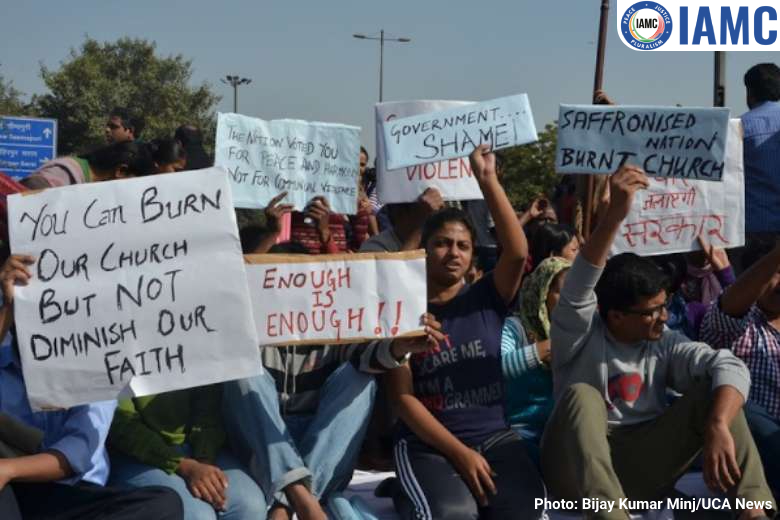
The anti-Christian campaign, coupled with police arrests of 10 Christians, including six pastors, on November 10 for alleged religious conversion, has emboldened right-wing Hindu groups, Ganava said.
“It is unfortunate that we are being portrayed as people working only for converting people to Christianity,” said Father Rocky Shah, public relations officer of Jhabua Catholic Diocese.
The priest said he took the initiative and wrote in local newspapers explaining Christian worship and baptism, trying to clarify common misconceptions. “But nothing changed. The situation is such that our prayer services are being falsely depicted as religious conversion activity,” Father Shah.
He recounted how a mob of over 1,000 tried to demolish a more-than-a-century old grotto of Mother Mary on November 10 in Thandla in their diocese, but the timely intervention of the police saved it. The mob, however, persisted with their demand for demolishing the grotto, alleging it was serving as a spot for conversion activities.

